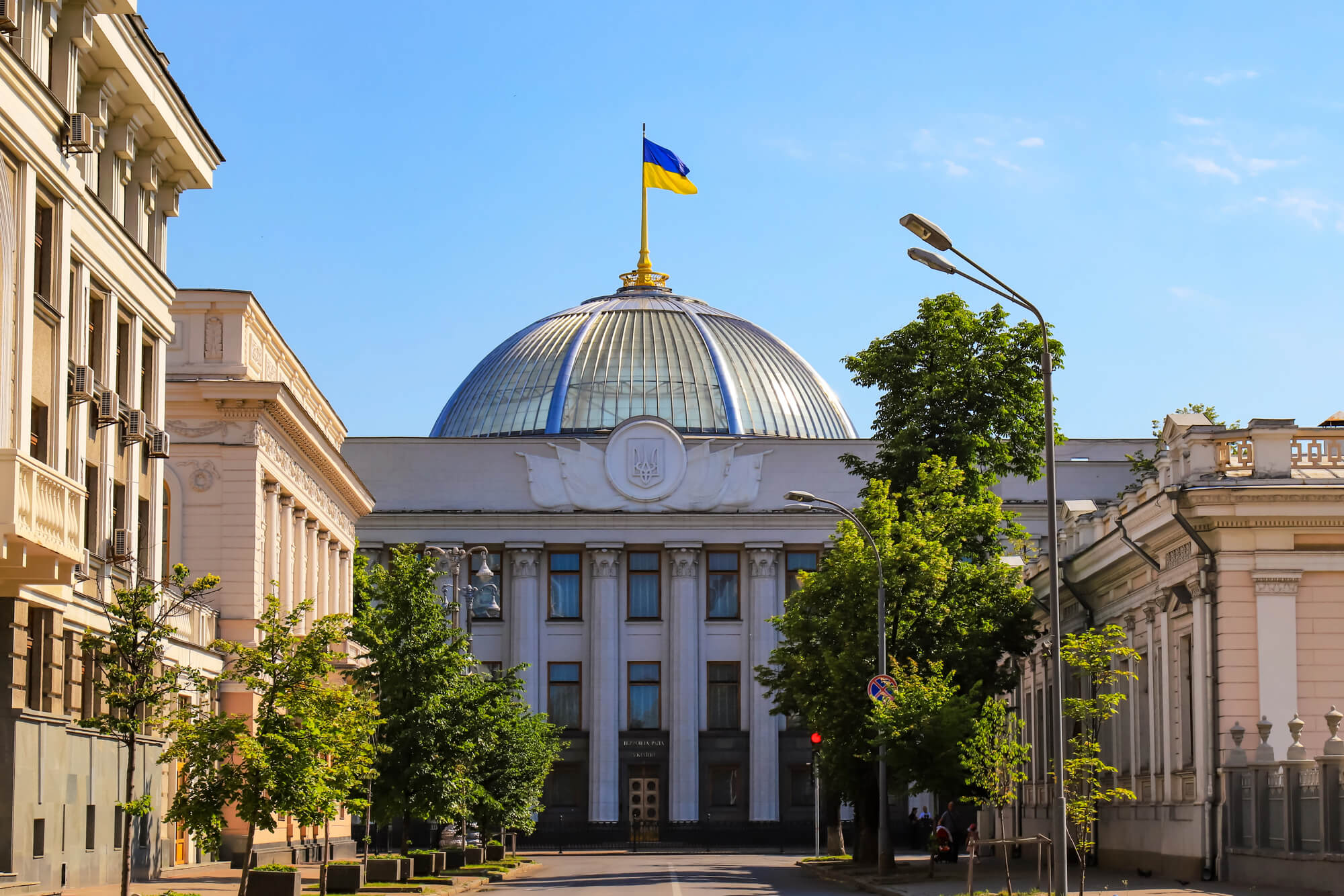Evidence from the best anti-corruption performers in post-Soviet Eurasia indicates that successful reform is only possible in the conditions of a radical break with the past and at least a temporary breakdown of the state-business nexus. However, the risk of reversal is high since new incumbents often develop their own vested interest.
As the examples of Estonia in early 1990s and Georgia, more recently, demonstrate, a so-called ‘big-bang’ type radical reform may be required in post-Soviet context to break out off vicious circle of corruption, impunity and cronyism. These two cases also suggest that the breakdown [at least temporary] of the state-business nexus is a necessary (not a sufficient) condition for successful reform in post-Soviet Eurasia. This article focuses on Georgia where the most radical reform happened in 2004-2008 when the nexus between state and business was especially weak. Then, as time passed, the new incumbents developed their own vested interests. This became apparent between 2008-2012 when a state-business nexus re-emerged with the state apparatus becoming increasingly manipulated for the sake of private and group interests. Those interests undermined market competition, and, under Saakashvili’s government, elite networks used state power to control economic and political structures. Yet, although concerns over particularistic practices have remained, the scale of petty bribery has decreased substantially. Despite the controversies, Georgia remains to be the case of greatest positive transformation since the existence of governance measurement indices
In order to understand the interaction between the state and business under Mikheil Saakashvili it is important to look at the pre-Rose Revolution situation. On the eve of the Rose Revolution in Georgia, the oligarchical class had consisted of the wealthiest businessmen with blood kinship links to then President Eduard Shevardnadze. The counter-elites headed by Mikheil Saakashvili were only peripherally related with large businesses and had only one or two financiers; for example, natural gas trader David Bezhuashvili. This means that incoming elites were less beholden by economic interests in the period during which most radical reform took place (2004-2007). The parliament elected in 2004 mostly consisted of young activists from National Movement. Only a few businessmen could be found among the ruling UNM (United National Movement) faction.
Most of the Shevardnadze-era oligarchs were prosecuted. In order to buy their freedom they had to pay large sums of money to state coffers (for example Gia Jokhtaberidze, owner of Georgia’s biggest mobile phone company and Shevardnadze’s son-in-law, was only released after he paid USD 15.5 million) and to commit to a ‘volunteer transfer of shares’ either to the state or to the individuals connected with the ruling team. In 2004-2012, around 9,500 private properties were handed over to the state for free according to the prosecutor’s office, which raises natural concerns as to how ‘voluntary’ these donations really were. There was no single policy or simple rule to apply to all oligarchs and each case was dealt individually. Some of Shevardnadze-era oligarchs lost significant part of their assets as a result of the prosecution (e.g. Nugzar Shevardnadze, Shevardnadze’s nephew) but others (e.g. Gia Jokhtaberidze Shevardnadze’s son-in-law, or Vakhtang Rcheulishvili, former vice-speaker and owner of development business) stayed afloat. All of them kept low profile in the immediate aftermath of Rose Revolution but resurfaced soon afterwards.
This process was widely referred to as ‘state extortion’. However, it was different from simple racketeering or a corruption scheme in one important way – rather than going to private pockets, it mainly benefited the impoverished state, and helped to pay for salaries of bureaucrats and for large infrastructure projects. However, it also benefited UNM, the ruling political party, and helped to consolidate its influence over the state. Some of the companies that earlier belonged to oligarchs ended up in the hands of regime insiders after the re-privatisation. Businesses would often be paying significant amounts to political party coffers in exchange for favourable treatment by the state.
As the spoils re-distribution process neared completion in 2007-2008 and Saakashvili government failed to establish efficient institutions that would ensure the separation of business and politics, a new class of oligarchs emerged, which included former cabinet ministers and close friends of Mikheil Saakashvili. The cases of former officials becoming rich entrepreneurs are not many. Indeed, there is no room for many oligarchs in a small economy like Georgia. That was not the usual ‘revolving door’ enrichment of a succession of officials because it involved the establishment of permanent near-monopolies in various markets and the illicit takeover of businesses through blackmail and misuse of the criminal justice system. Even though some of these individuals have won court discussion against Georgian Prosecutor’s office in 2014-2015 (e.g. Davit Kezerashvili, former Minister of Defence), there is nothing that would explain their abrupt appearance among the owners of large businesses apart from the manipulation of formal institutions. Hence the court verdicts in their favour point more to the poorly-evidenced cases and the failure of Georgian law enforcement system rather than the absence of corrupt practices.
Overall it can be safely argued that Saakashvili’s policies were aimed at enlisting the businesses to build a stronger state rather than at undermining the nexus between the state and the business. Establishing near-monopoly on the rents and accumulating resources in the hands of few insiders was rather an intermediate outcome and should be considered as means to the ultimate aim of consolidating the control of UNM political party over the state apparatus.
Overall it can be safely argued that Saakashvili’s policies were aimed at enlisting the businesses to build a stronger state rather than at undermining the nexus between the state and the business. Establishing near-monopoly on the rents and accumulating resources in the hands of few insiders was rather an intermediate outcome and should be considered as means to the ultimate aim of consolidating the control of UNM political party over the state apparatus.
The ‘new oligarchs’ co-existed with certain older oligarchs to fund the UNM after the Rose Revolution. In contrast to the parliament elected in 2004, the UNM faction elected in 2008 included a number of wealthy businessmen. The government is believed to have awarded public contracts to ‘friendly’ companies, in exchange for political support. The owners of the same companies would be found among key financial contributors to the ruling UNM. In some cases it has been alleged that a company’s contribution to UNM party coffers could have been among the reasons why the prosecutor’s office would show no interest in investigating large-scale fraud involving the company in question. Even though the corruption decreased dramatically in the sectors where state interacts with the citizenry (state issued documents, street-level policing as well as licensing, regulations and tax monitoring of small businesses), the re-emerging state-business nexus undermined some of the key developments relating to transparency such as e-procurement because many of the deals related to public bidding were negotiated ‘offline.’
After the end of Saakashvili government in 2012, Transparency International Georgia found that the collusion between politicians and businessmen – a significant problem under the Saakashvili government – had started to decrease noticeably. The practice of extorting funds from businesses is not so necessary for the incumbent authorities because Georgian Dream, the party in power, is funded by Bidzina Ivanishvili, the richest man in Georgia. Ivanishvili, who amassed his fortune in Russia during the early years of post-Soviet transition, funded the governance-related reforms of Saakashvili administration in the post-Rose Revolution period but declared his political ambitions after a standoff with Mikheil Saakashvili in 2012 – a case that resembles a private vendetta of a businessman against the imposing political ruler. One important implication of a rich man holding political power is that the authorities do not need to engage in the types of corruption prevalent under their predecessors, such as diverting state resources to the coffers of dominant political party.
However, the collusion between politics and business continues to be an issue since the companies that often win public tenders also contribute to the coffers of ruling Georgian Dream political party. However, unlike in the UNM era, when a monopoly on the rents was motivated by the aim of consolidating political power, nowadays corruption is more ‘privatised’: particular companies or networks are influencing state behaviour to extract private benefit. So far the anti-corruption fight of Georgian Dream government has mainly focused on the members of Saakashvili government. This exacerbates the allegations of politically-motivated prosecutions because, since October 2012, there has been not a single high-profile case of prosecution for corruption in the ranks of GD government.
This begs the question – what are the implications for Ukraine? The breakdown of state-business nexus in post-Soviet context is less likely unless there is a complete reshuffle of the political elite (known as a ‘big bang’ in the corruption literature). Evidence from the ‘best performers’ (Estonia, and Georgia) indicates that a radical break with the past is needed that cannot be launched by fragmented elite and carryovers from the previous corrupt regime. Given the conditions in Ukraine, this is not a possibility. The stated goal of ‘decentralisation’ is not a cure either because local government can be easily undermined by corrupt networks.
Evidence from the ‘best performers’ (Estonia, and Georgia) indicates that a radical break with the past is needed that cannot be launched by fragmented elite and carryovers from the previous corrupt regime. Given the conditions in Ukraine, this is not a possibility. The stated goal of ‘decentralisation’ is not a cure either because local government can be easily undermined by corrupt networks.
However, Ukraine has a good chance due to its vibrant civil society that can serve as a necessary impetus for the reform. EU conditionality alone would not inflict the change. Moreover, examples of Georgia and Estonia indicate that advice from the West is often contrary to what works in practice [e.g. Western advice to both Laar and Saakashvili was to be less radical than they were]. But civil society actors may be crucial to mounting pressure on elites and triggering much-needed changes. This pressure, combined with the EU’s normative and structural power, can be transformational. Nevertheless, the positive change in Ukraine will be slow and piecemeal, which gives more chances to entrenched interests to undermine the outcomes of incremental reform.
Attention
The author doesn`t work for, consult to, own shares in or receive funding from any company or organization that would benefit from this article, and have no relevant affiliations



